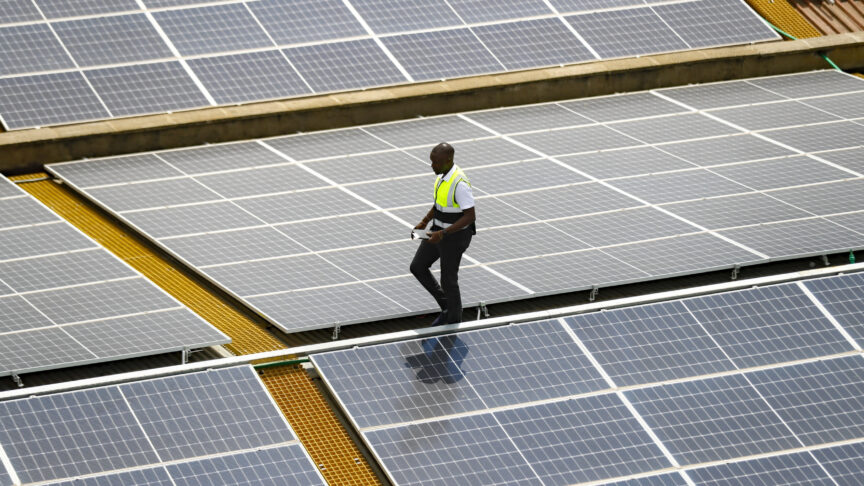Sudan coup attempt: How Europe can defend Sudan’s transition to democracy
Sudan’s civilian protest movement is fighting for democracy. Europe can play a decisive role, but to do so its condemnation must come with consequences
Before sunrise on Monday morning, Sudan’s security services began arresting the civilian leadership of the country’s transitional government, including the prime minister. News dribbled out slowly at first due to coordinated disruption of telecommunications. But within hours it became clear that the military half of the transitional government had sidelined the civilian half in what had become a deeply fraught partnership government.
At first, the Sudanese Armed Forces’ (SAF) leadership – the core of the military component of the transitional government – appeared to argue that what had happened was not a coup but a way of rescuing Sudan’s faltering transition. Nevertheless, Sudan’s powerful civilian protest movement reacted immediately. Back in 2018-19, in huge numbers the protest movement had driven the popular mobilisation that led to former president Omar al-Bashir’s departure. Convinced that Monday morning’s events represented nothing short of a military-led coup, protesters again gathered in their thousands. And their instincts proved sound – early noises from the SAF about preserving the civilian-led character of the transition have already given way to the military deploying violence against peaceful demonstrators.
This escalatory cycle began last week when an unprecedented pro-military protest called for the military to take power. The third force at the centre of Sudanese politics, along with the military and civilians – armed movements – took a lead role in the protest, to the surprise of many. While some of the armed movements sided with the civilians, the Sudan Liberation Movement (SLM) Minawi and the Justice and Equality Movement (JEM) backed the pro-military protest. Tensions with the civilians trace back to the armed movements feeling marginalised by the 2018-19 protest movement, which formed the transitional government without them. The movements only entered government later via the Juba Peace Agreement. SLM Minawi and JEM now formed common cause with a patchwork of political groups alienated by the civilians more broadly, creating a new alliance dubbed the FFC Minawi (named after one of the armed opposition group leaders). The group’s name played on that of the Forces for Freedom and Change (FFC), which, during the revolution was the umbrella body that brought together political parties and civil society actors. By adopting this name, the new FFC splinter group’s goal was both to demonstrate that parts of the civilian political constituency wanted military rule but also to increase the perception of chaos within the civilians’ political ranks – which might, in turn, strengthen the justification for a coup in the interest of restoring order.
The military will try to discern the strength of international opposition and look for daylight between Europe, the US, and the AU
In response, the civilian protest movement quickly marshalled a large counter-demonstration, the March of the Millions. From the disparity in numbers between the modest-sized pro-military crowds and both the 2019 throngs and the substantial March of the Millions, it is clear that the military’s supporters are far from a mass movement. Furthermore, the intent behind the earlier pro-military protest was so blatant that it boomeranged, leading the March of Millions to go beyond the call for preservation of the status quo civilian-military government, instead escalating to demand full civilian rule.
At the same time, other reasons lay behind the military’s coup attempt. A civilian-driven committee set up to dismantle the former regime’s illicit economic networks – known as Tamkeen – was steadily breaking down its hold on wealth. The committee had not yet reached the military’s direct economic interests but clearly had these in its sights next. In addition to this, the prospect of losing office exposed the military to facing trial over past acts. The threat of prosecution for the infamous clearing of Martyrs’ Square during the 2019 sit-in protest, which led to the deaths of hundreds of protesters, continues to hang over the military.
The March of the Millions, therefore, sparked the military’s decision to take over, but it caught fire due to the combustible mix that had been brewing.
The European Union and its member states have named Sudan’s transition a generational opportunity deserving of fulsome support. So what can Europe do?
Firstly, there is an urgent need for clear signalling. The military’s approach – trying to avoid the appearance of a coup to mitigate domestic but also international headwinds – indicates it is possible to impact on its calculus. By logical extension, the strength of international opposition will affect the military’s next steps and ultimately its preparedness to enter negotiations with the civilians, which is the only way out.
The military will doubtless try to discern the strength of international opposition, and will look for daylight between Europe, the United States (US), and the African Union (AU). The US has already linked its condemnation to consequences by immediately freezing $700m in assistance, but the AU called for dialogue and the release of the arrested political leaders. Meanwhile, the EU’s high representative, Josep Borrell, condemned the coup attempt and expressed concern but fell short of conditioning European support on the military restoring civilian rule to the transition. EU member states need to urgently agree this line among themselves in order to allow the EU to make the strongest possible statement.
Secondly, a decisive and unified European position will create traction with Egypt and the United Arab Emirates. While Europe supports the civilians, Sudan’s sharp-elbowed neighbours see their interests as better served by a military-led government. For these countries, Sudan’s political trajectory is a core national interest. If Sudan’s transition comes increasingly undone, they will move swiftly, acting as accelerants and enablers to the military. In 2019, these states engaged aggressively in the transition by bolstering the military and ultimately preventing what might have been a full move to civilian rule. Firm European action now can prevent history repeating itself and Europe’s investment in Sudan’s democracy going to waste.
The European Council on Foreign Relations does not take collective positions. ECFR publications only represent the views of their individual authors.



